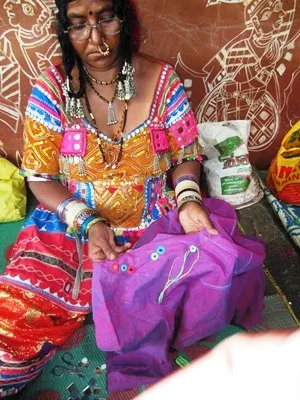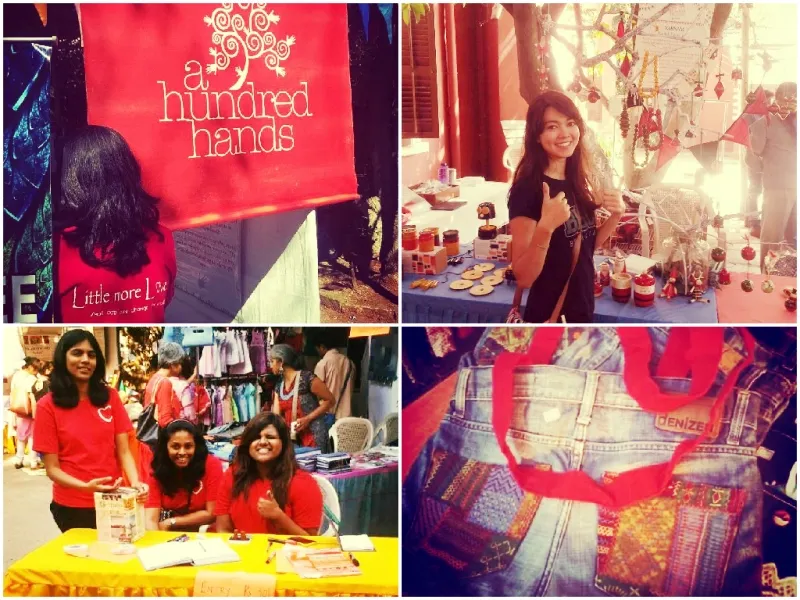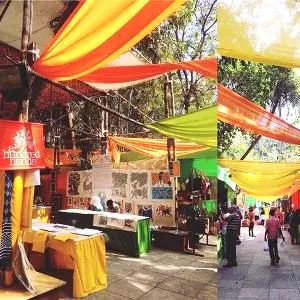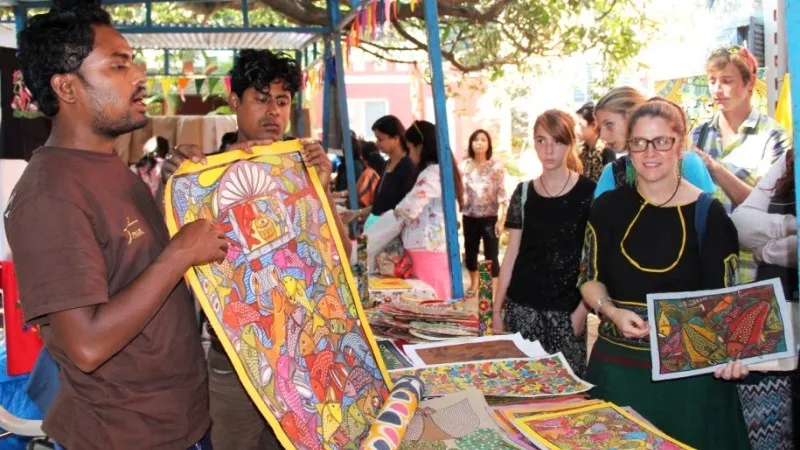Two Bengaluru sisters are helping local artisans become self-sufficient
“Give a poor man a fish and you feed him for a day; teach a man to fish and you feed him for a lifetime.”

This is the philosophy behind A Hundred Hands, a non-profit trust started by Dr Sonia Dhawan and Mala Dhawan in August 2010. It follows the principle of supporting craftsmen to build their own brands and businesses, thus helping them to be independent and self-sufficient.
“In a country like India, where culture and tradition have been preserved through rich craftsmanship, we take the term “handmade” for granted. We hardly give any credit to handicrafts and their creators but more to designers, retailers, and middlemen. That’s where huge margins get swallowed up, with the actual creator earning a pittance and losing his window of exposure,” says Dr Sonia Dhawan, a PhD in human genetics, who is the Founder Trustee of A Hundred Hands.
The focus of A Hundred Hands has always been to help artisans interface directly with customers, share their knowledge and processes and create an engaging interaction - one that leaves both sides not only more enriched, but also helps them earn a fair price for their products.
How it all began

They noticed that a huge gap existed in the interface between the creator and consumer. They then decided to formalise the programme and focus on creating opportunities for artisans across the country to connect directly with the consumers.
After two successful years of holding the Annual Handmade Collective in the Dhawan garden, the artisans came back wanting more than the bazaar. The Annual Handmade Collective gave the artisans the exposure they craved, but it left them wanting in areas like marketing, brand building, and improving their designs. Another important point was that they wanted to work with A Hundred Hands all year round.
“The organisation has provided its member artisans a unique platform to collaborate with other artists and interact directly with customers in an environment that supports and promotes handmade products. Artisans have thus been able to break boundaries and come out of their comfort zones to experiment and elevate their craft to new levels, and has given some reassurance that their craft is still valued and needs to be carried forward,” says Melissa Arulappan, Advisory Board Member of A Hundred Hands.
To help karigars sell better, commercial platforms aren’t enough. At A Hundred Hands, it is about helping them create, plan, brand, and promote better. To further this mission, A Hundred Hands has set up a membership programme for karigars. Today, it has over 100 artisans and groups/NGO members, impacting thousands of craftsmen across the country, helping them build their own brands and earn better.

New members can join every year by applying on the website. The selection process is stringent and is open to artisans/groups/NGOs that practise a craft directly.
“My family has been making leather chappals for over five generations. I am part of the fifth generation, and have my own ideas to build the brand. I have realised that the business needs a logo - a specific mark through which people can identify that it is genuinely handmade.

AHH has made me realise that I have to design better for today’s audience. I enjoy being a member of AHH and interacting with other young craftsmen and exchanging ideas on the AHH WhatsApp group. There is always someone to guide me,” says Rajendar Sonkaria, manufacturer of leather chappals.
For many smaller craftsmen, close to 40 percent of their annual sales come from A Hundred Hands’ initiatives.
“We are commission-free. We’ve been asked many times why we didn’t just turn this initiative into a business. We wanted to remain true to why we started this. People find it hard to believe that 100 percent of the earnings go back to the creators,” says Mala Dhawan.
Right now, AHH is at a stage where they need funding for capacity building and a space as AHH's centre. They also require support from the corporate world through CSR funding. They also need designers to volunteer with karigar groups and filmmakers to document the crafts.
The ME to WE project
Launched last year during the annual Handmade Collective, the ME to WE project is a unique initiative where two members of different art forms created a product that is the result of two crafts.
It encouraged artisans to interact with each other, learn about the other’s craft and start thinking like a designer. Team AHH is hoping that many designers will volunteer their time to guide and support the karigars.
The Denim Project
When patients at NIMHANS expressed their wish to earn while undergoing treatment, A Hundred Hands started the “Recycled Denim ” project last year - an initiative that encouraged tailoring.
It started with the idea of designing something simple using an old pair of jeans, by Dr Sonia Dhawan. This included reviving the lost art of kowdhi-making from a group in Bellary. The resulted in The Bum Bag, a bag made from old pairs of jeans. The instructions for the designs were given to the patients who wanted to make the bags. These were sold by A Hundred Hands who handled marketing and production aspects while patients earned a steady income, even after they had completed their treatment.
Today, in addition to working with NIMHANS, A Hundred Hands has been able to expand this project to other groups like women’s self-help groups and other NGO’s. It is currently supporting eight groups.

The Annual Handmade Collective
This year, AHH has completed its collective at Bhau Daji Lad Museum in Mumbai.
“I wait for the Handmade Collective every year. I enjoy interacting with the artisans and understanding what has gone into their craft. My home has been decorated by the beautiful products I found at the Handmade Collective,” says Shaila Faleiro, art collector, writer, and communication expert.
The collective in Bengaluru is held for five days starting from the last Wednesday of every November. This year, it is being held at United Theological College on Miller’s Road in Bangalore. After this event, the group shifts to David Hall Museum in Fort Kochi following which, for the first time, it will be held in Coimbatore.







